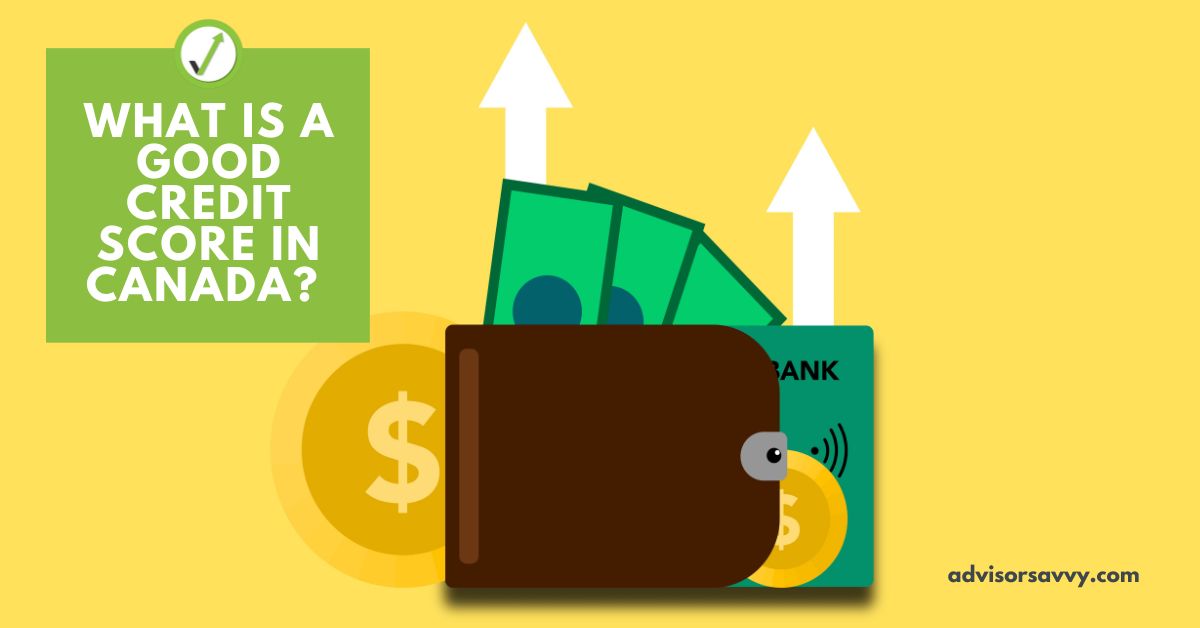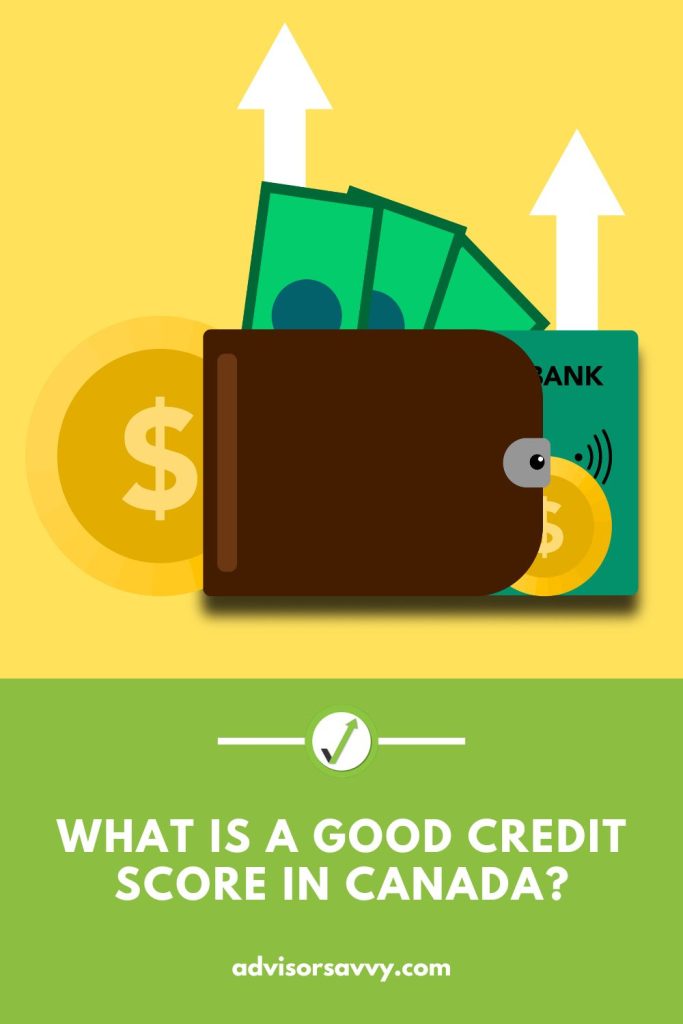
It seems like everyone is talking about credit scores these days. That’s especially true in Canada because about 71 percent of Canadian families carry some type of debt. That could be a mortgage, loan for a vehicle, student debt, or other obligation.
Credit scores are one of the factors lenders will consider when looking at your financial situation. That could affect your ability to buy or lease a car, qualify for a mortgage, or get more favourable loans. The better your credit score, the more financial flexibility you have.
But if you aren’t familiar with the system, how do you know if your credit score is good, bad, or somewhere in between? And why does it matter? Let’s have a look at what is a good credit score in Canada and how to make your credit score work for you.

Table of contents
- What are credit scores and who creates them in Canada?
- What is the credit score range in Canada?
- How do credit bureaus assess your credit score?
- What is the average Canadian credit score?
- What is a good credit score in Canada for a mortgage?
- What credit score do you start with?
- How long does information stay on your credit report?
- How long does it take to build credit?
- How can I build and improve my credit in Canada?
- What are the things that can damage my credit score?
- Who can see and use your credit report?
- How to check credit scores in Canada?
What are credit scores and who creates them in Canada?
Your credit report summarizes your lending history and other details related to borrowing money. A credit score and report are generated when you open your first credit account. For most, the first financial product used is a credit card. Information about your accounts is sent to Canada’s credit bureaus by your creditors such as banks, credit unions, retailers, and other lenders. TransUnion and Equifax are the two main Canadian credit bureaus that collect, store, and share information about your use of credit. This means you have two credit scores in Canada, one from each bureau.
Your credit score & report. Always free, forever
It takes 3 minutes to join 20+ million people who trust ClearScore to help them improve their financial future
What is the credit score range in Canada?
The credit score range is from 300 to 900. The higher the score, the more easily you will qualify for financial products. A higher credit score communicates good use of credit in the past. When lenders see this, they are more likely to extend you a financial product with favourable conditions.
As a general rule of thumb, the sub-ranges of credit scores and how they rank are as follows:
300 to 559 – Poor Credit Score; you will have difficulty getting approvals and face high interest for any loans
560 to 649 – Fair Credit Score; you may receive approvals but limited to secure credit options
650 to 724 – Good Credit Score; you are much more likely to get approvals and reasonable interest rates
725 to 759 – Very Good Credit Score; you will have preferred rates and better lending conditions
760+ – Excellent Credit Score; you’re in an elite category with maximum credit options
How do credit bureaus assess your credit score?
Credit bureaus base their calculations on several factors that may include:
- Your credit history
- How long you’ve been using credit
- How much debt you’re currently carrying
- Whether you’ve made any late payments on loans or credit cards
- Whether you’ve maxed out the full amount of credit available or just a portion of it
Examples of how credit bureaus make their assessment are available on both the TransUnion and Equifax websites.
Your credit score & report. Always free, forever
It takes 3 minutes to join 20+ million people who trust ClearScore to help them improve their financial future
What is the average Canadian credit score?
According to 2021 data from over 1.6 million members of Borrowell, the average credit score in Canada is 660 — considered good by lenders. In addition, borrowers ranked at 660 will usually qualify for the financial products they need. However, it’s always better to have a higher credit score to get the best rates available and to have even more flexibility.
What is a good credit score in Canada for a mortgage?
When applying for a mortgage, Canada’s mainstream financial institutions are looking for a credit score between 600-700 or higher. However, your credit score is just one of the many factors in consideration when applying for a mortgage. The lender will also look at your earning power and other obligations that might affect your ability to reliably make mortgage payments.
If your credit score falls below the target range, there are other options available. Smaller institutions or lenders arranged through a mortgage broker can help you get a mortgage.
What credit score do you start with?
At the outset, credit scores start at 300 and move upward from there as you build your credit history over time. In today’s digital world, it’s challenging to function without a credit card. Hotel reservations require a credit card to hold a room. Buying items online requires a credit card. Processing bill payments through credit card has become a common practice. So even if you would prefer an all-cash lifestyle, that has become a virtually impossible in Canada today.
If you have no credit history or need to rebuild your credit, it would be smart to open a secured credit card account. Unlike unsecured cards, you pay a deposit upfront which sets the limit of your card. Then you can use it like any other credit card. The secured credit card provider reports your payment habits to the credit bureaus. Based on keeping your account in good standing by meeting re-payment requirements, you will create a positive credit history and build a higher credit score over time.
For young people, it’s sometimes challenging to start building a positive credit history. Some of the best steps are to open a bank account, get a credit card, and keep it in good standing. Making monthly payments in full (or at least the minimum payment) and on time, plus landing a consistent job are also positives. Any missed payments will create a bad credit history. So, this is an important time to pay attention to your obligations. By starting on the right foot now, you will create a solid financial foundation for the future.
How long does information stay on your credit report?
Positive information about your credit history often remains on the account indefinitely. That’s good for your overall credit score. Negative information, like missed payments or defaults on a loan, remains on file for a specified period. The length of time it remains on your report depends on the nature of the item.
In general, negative information stays on your credit report for six years. However, some information may remain for a shorter or longer time span. That can simply be missed payments or more complex matters like accounts sent to a collection agency or a bankruptcy filing. Negative information in your credit report can hurt your credit score.
How long negative information stays on your report can vary depending on the type of financial information, where you are located (province/territory), and the credit bureau that created the report.
How long does it take to build credit?
There’s no shortcut to establishing your credit history and improving your credit score. Don’t fall for claims from dodgy companies saying they are able to boost your score quickly. Only your direct creditors can update information on your credit file based on your activity.
Instead of thinking short-term about your credit score, try to think in the long run. By tweaking your financial habits and maintaining these habits over time, your credit score will naturally improve and remain healthy.
How can I build and improve my credit in Canada?
Pay bills on time every month
The most important way you can build a good credit score is to pay your bills on time and in full each month. Creditors are looking for consistent, reliable payments because it indicates you can manage credit responsibly. If you carry a credit card balance month-to-month, then be sure to at least pay the minimum balance on time. Credit history has the largest impact on your credit score. Even one missed payment can set you back.
If you are expecting a rebate for a returned item, don’t withhold payment to your credit card while waiting for the rebate. You need to stay in good standing with the credit card company or retailer. They will credit your account when the rebate is received. But if you think, “I don’t need to pay that because it’s not a fair charge”, then you will be harming your credit score.
Your credit score & report. Always free, forever
It takes 3 minutes to join 20+ million people who trust ClearScore to help them improve their financial future
And don’t forget that these tips apply to all your bills, not just credit cards. If you have a cell phone plan and fall behind on payments, that will hurt your score too. Track what you owe carefully and stay on top of payments. If you’re not sure what accounts report to the credit bureau, you can pull your report for free. The accounts reported should be your top priority for on time and full payments. If you’re worried you might forget to make payments on time, set up automatic payments from your bank account to alleviate stress.
Under extreme circumstances, if you know you won’t be able to make your regular payments, contact your lender right away. It’s better to address the problem up-front. Don’t wait until you have missed payments that will lower your credit score. Lenders are people too, they understand that things happen. The best thing you can do is communicate and they will likely help you out.
Don’t spend to the max
Here’s something many Canadians don’t realize. If your credit card balances are at the top of their limit and you’re just paying the minimum each month, that hurts your credit rating. Keeping your balances lower than what’s available will look better to credit bureaus. It’s advisable to keep balances at less than 50% of the credit card’s limit.
If you find yourself using money from one credit card to pay the minimum balance on other cards, that’s a warning sign of overleveraging. Look at your overall financial situation and do what you can to pay down high-interest debt.
Don’t take on too much credit
This is a tough one. Many lenders promote their cards and send ‘you have prequalified’ letters to prospective clients. Be careful because applying for numerous credit cards or other financial vehicles within a short span of time can be seen negatively by the credit bureaus. Taking on alot of new debt at once can indicate financial distress. Every time a lender asks to check your credit or pull a report on your credit, that’s a ‘hit’ on your credit file. And too frequent checks can make it seem like there is a problem, making you a less attractive borrower.
What are the things that can damage my credit score?
Here is a summary of the things that can damage your credit score to avoid:
- Too many credit applications
- Too many (or too few) open credit accounts
- High credit card balances
- High balances on loans
- Late or missed payments
- Not making payments while disputing a charge
- Failing to advise your lender when payments are in jeopardy
- Accounts in collections
- Consumer proposals or bankruptcy
Who can see and use your credit report?
In Canada, there are rules in place as to who can see your credit report and how that information can be used. As you may expect, companies including banks, credit unions, credit card companies, car leasing companies, and retailers can access your credit report. Some that may not be as obvious are mobile phone companies, insurance companies, the government, employers, and landlords. If you have a mortgage or a home equity line of credit, that may also be tracked in your credit report. Mortgage information may be used by the credit bureau when calculating your credit score in Canada.
Your credit history can have an impact not only on activities like borrowing money or seeking a credit card limit increase. It can also impact your ability to rent an apartment, qualify for a promotion, or be considered for a new job.
Clearly, it’s wise to work towards having a good credit score and to stay on top of your habits as a borrower.
How to check credit scores in Canada?
It’s important that information stored and shared by credit bureaus is accurate. Sometimes credit records from the past may not be cleared, such as when you pay off a car. To ensure your current obligations are on file and accurate, you can request a credit score report from both Equifax Canada (called credit file disclosure) and TransUnion Canada (called consumer disclosure). Typically you can get a free credit score report in Canada once a month.
There is a fee associated with more frequent checks on your credit report. However, some banks are encouraging people to stay on top of their credit scores by providing a link to free credit score checks via the bank’s website. Now it’s easy to keep an eye on credit bureau reporting while you work towards a great rating.
When you request a credit report, there is no harm to your credit score, unlike when lenders check your file.
What to look for
Once you have access to your credit reports, check that your personal information is correct with both bureaus. Make sure the account information is accurate and there are no ‘skeletons of credit past’ still on your file. If you discover mistakes on your account, you will need to contact the lender. If your creditors aren’t helpful you can file a dispute with the credit bureau directly.
Another benefit of keeping an eye on your credit reports is avoiding identity theft. Check to make sure that any queries on your account are yours and that someone else didn’t try to access credit cards or other loans under your name.
Because things can change over time as you take out new loans or pay things off, it is important to continue requesting a credit report at regular intervals – at a minimum once a year. Maybe this could become a tradition on a special occasion so that you remember. Happy Birthday to you – you’re maintaining a good credit score in Canada!

